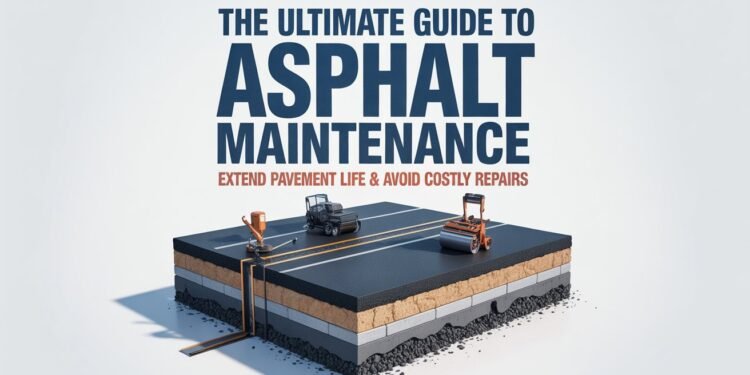Asphalt, a reliable blend of aggregates and binders, creates the smooth and robust roadways we drive on every day. Its economic efficiency and sustainable nature, largely due to its highly recyclable components, make it a preferred material for pavements across the globe. However, the long-term durability of these surfaces is not just a product of the material itself; it also depends on diligent care and preventative maintenance.
Regular upkeep is essential to protect the longevity and performance of your asphalt investment. A professional evaluation is the strategic starting point for mapping out a tailored maintenance plan, and local services often begin with something like securing on-site paving estimates in Granger, IN. This proactive step ensures you get expert advice tailored to your specific pavement needs.
Essential Asphalt Maintenance Techniques
The goal of maintenance is to address minor issues before they become major structural problems. Implementing best practices ensures long-term durability. One critical technique is Crack Filling, where individual fissures are sealed with rubberized compounds. This prevents water from penetrating the asphalt’s sub-base, which is the primary cause of severe damage like potholes.
Another essential measure is Sealcoating, which involves applying a protective liquid layer over the entire asphalt surface. Sealcoating shields the pavement from damaging UV rays, oxidation, oil spills, and the constant wear of traffic. Finally, when isolated damage does occur, Pothole Repair is necessary. This involves removing the damaged sections and filling them with new asphalt to restore a smooth, safe surface and prevent further pavement breakdown. Proactive maintenance, such as high-quality sealcoating, acts as a sacrificial layer that takes the brunt of the wear and tear, shielding the underlying asphalt.
How Often Should You Maintain Your Asphalt?
Pavements are constantly exposed to traffic, weather (especially freeze-thaw cycles), and heavy loads. While a general rule of thumb is to perform thorough inspections and maintenance every 2 to 3 years, the precise frequency depends on:
- Climate: Areas with harsh winters or intense sun may require more frequent sealcoating.
- Traffic Load: High-volume commercial parking lots need more attention than low-traffic residential driveways.
- Initial Installation Quality: A poor sub-base preparation can lead to early pavement failure, demanding quicker repairs.
A professional assessment will help customize a maintenance interval tailored to your specific site conditions.
The Critical Role of Professional Asphalt Services
Choosing experienced asphalt service professionals is paramount for successful long-term results. Professionals bring several key advantages:
- Expert Diagnosis: They can spot underlying issues that an untrained eye might miss.
- Precision Application: Correct material ratios and temperature-controlled application of sealants are essential for them to cure properly and last.
- Specialized Equipment: They have access to industrial-grade tools necessary for effective crack routing, cleaning, and material distribution.
For property managers and homeowners near areas like Granger, IN, seeking out qualified local experts ensures you get solutions that are economically viable and perfectly suited to the regional conditions.
Asphalt Maintenance: Costs vs. Savings
While there is an initial expense with routine asphalt maintenance costs, viewing it as an investment, not an expense, is crucial. The cost of consistent maintenance is marginal compared to the massive financial outlay required for a total asphalt replacement.
By proactively budgeting for crack filling and sealcoating, you can effectively double the functional life of your pavement. This strategic spending preserves capital, maintains public safety, and protects the aesthetic appeal of your property for years to come.
Sustainable and Eco-Friendly Asphalt Practices
Modern asphalt maintenance practices are increasingly focused on environmental responsibility:
- Recycling: Asphalt is 100% recyclable. Old pavement is constantly being milled up and incorporated into new paving mixes, drastically reducing waste.
- Low-Impact Materials: The development of low-VOC (Volatile Organic Compounds) sealants and eco-friendly fillers minimizes the carbon footprint associated with maintenance.
These sustainable approaches help conserve natural resources and ensure your pavement practices are future-proof.
Final Takeaway: Protect Your Pavement Investment
Proper, regular asphalt maintenance is the single most important factor in determining the lifespan of your paved surfaces. By adhering to a tailored maintenance schedule and utilizing the expertise of seasoned professionals, you ensure your infrastructure remains resilient, safe, and aesthetically pleasing for decades.
Do Read: Measuring Success: Key Metrics When Deploying Self-Checkout Kiosks




